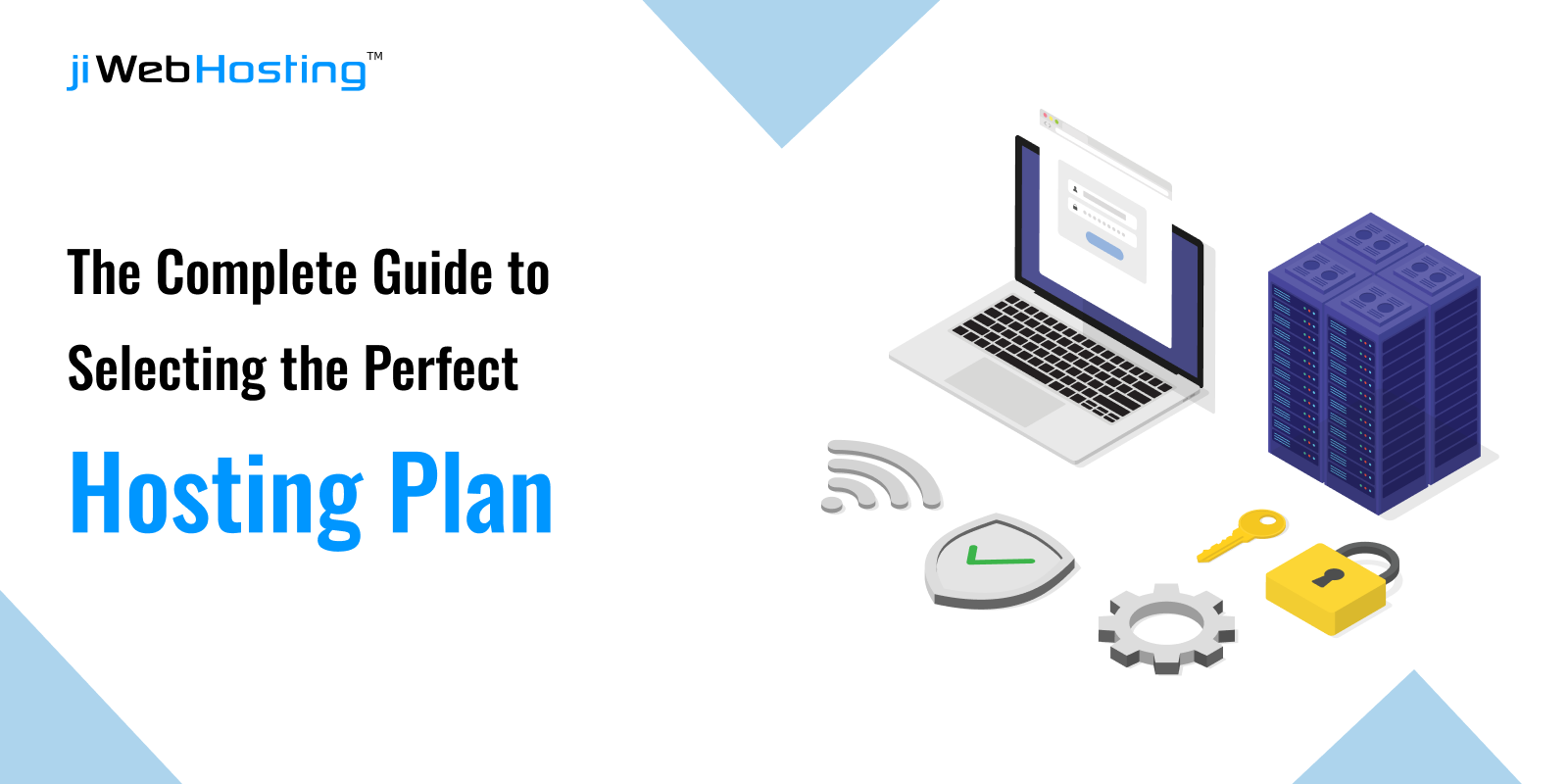- Jan 31, 2025
- 2921
Share this post on:

Selecting the right web hosting plan is a critical decision for anyone looking to establish an online presence. Whether you are launching a personal blog, a business website, or an e-commerce platform, the hosting plan you choose can significantly impact your site's performance, security, and overall success. With numerous options available, it can be overwhelming to find the perfect fit. This guide aims to simplify the selection process by outlining key factors to consider, types of hosting plans available, and practical tips for making an informed choice.
Web hosting is a service that allows individuals and organizations to make their websites accessible via the internet. A web host provides the necessary infrastructure, including servers and storage space, to store website files and data. When users enter a website's URL in their browser, they are directed to the server where the site is hosted.
Why Choosing the Right Hosting Plan Matters
The choice of hosting plan affects several aspects of your website:
•Performance:A reliable hosting plan ensures fast loading times and minimal downtime.
•Security:Different plans offer varying levels of security features to protect against cyber threats.
• Scalability:As your website grows, your hosting needs may change; a suitable plan allows for easy upgrades.
• Support:Quality customer support can help resolve issues quickly and efficiently.
Types of Web Hosting Plans
Understanding the different types of web hosting plans is essential for selecting the one that best meets your needs. Here are the most common types:
1. Shared Hosting
Overview: Shared hosting involves multiple websites sharing a single server's resources. It is often the most affordable option.
Who it's for: Ideal for small websites or blogs with low traffic volumes.
Pros:
• Cost-effective
• User-friendly for beginners
• Maintenance handled by the host
Cons:
• Limited resources
• Potential performance issues during traffic spikes
2. VPS Hosting
Overview:Virtual Private Server (VPS) hosting provides dedicated resources within a shared server environment. It offers more control than shared hosting.
Who it's for: Suitable for medium-sized businesses or websites expecting moderate traffic.
Pros:
• Greater control over server settings
• More resources than shared hosting
• Improved performance
Cons:
• Higher cost than shared hosting
• Requires some technical knowledge
3. Dedicated Hosting
Overview:Dedicated hosting provides an entire server exclusively for one website. This option offers maximum performance and security.
Who it's for: Best for large businesses with high traffic volumes or complex websites.
Pros:
• Complete control over server configuration
• High performance and reliability
• Enhanced security features
Cons:
• Expensive compared to other options
• Requires technical expertise for management
4. Cloud Hosting
Overview:Cloud hosting utilizes multiple interconnected servers to distribute resources dynamically. It offers high availability and scalability.
Who it's for: Great for businesses with fluctuating traffic levels or those requiring flexibility.
Pros:
• Scalable resources based on demand
• High uptime and reliability
• Cost-effective as you pay only for what you use
Cons:
• Can become expensive with high usage
• Complexity in managing cloud infrastructure
5. Managed WordPress Hosting
Overview: Tailored specifically for WordPress sites, this type of hosting includes optimizations and features designed for WordPress performance.
Who it's for: Ideal for users who want hassle-free management of their WordPress sites.
Pros:
• Optimized performance for WordPress
• Automatic updates and backups
• Enhanced security features specific to WordPress
Cons:
• More expensive than standard shared hosting
• Limited to WordPress sites only
Key Factors to Consider When Choosing a Hosting Plan
When selecting a web hosting plan, consider the following factors:
1. Website Requirements
Understanding your website's specific needs is crucial. Consider factors such as:
• Type of website: Is it a blog, e-commerce site, or portfolio?
• Expected traffic: How many visitors do you anticipate?
• Content type: Will you host videos, images, or other media?
2. Bandwidth and Storage Needs
Bandwidth refers to the amount of data transferred between your site and its visitors, while storage pertains to how much disk space your files will occupy. Ensure that your chosen plan offers sufficient bandwidth and storage based on your content type and expected traffic.
3. Uptime Guarantee
Uptime is critical; it indicates how often your website will be accessible online. Look for hosts that offer at least a 99.9% uptime guarantee to minimize downtime and ensure consistent accessibility.
4. Customer Support
Reliable customer support is essential when issues arise. Opt for providers that offer 24/7 support through various channels such as live chat, email, or phone.
5. Security Features
Security should be a top priority when selecting a web host. Look for features such as:
• SSL certificates
• Firewalls
• Regular backups
• Malware scanning and removal services
6. Scalability Options
As your business grows, so will your hosting needs. Choose a provider that offers easy upgrade options without significant downtime or data migration challenges.
7. Pricing Structure
Compare pricing models across different providers:
• Initial costs vs renewal rates: Some hosts offer low introductory prices but higher renewal rates.
• Hidden fees: Be aware of additional charges that may apply later on.
Common Mistakes to Avoid When Choosing a Hosting Plan
To ensure you make an informed decision, avoid these common pitfalls:
1. Choosing solely based on price: While affordability is important, it shouldn’t be the only factor.
2.Ignoring customer reviews: Research user experiences with potential hosts.
3. Overlooking scalability: Ensure that your chosen plan can grow with your business.
4.Neglecting security features: Protecting your site should be a priority; don’t compromise on security.
5. Failing to understand terms: Read all terms of service carefully before committing.
Conclusion
Selecting the perfect web hosting plan requires careful consideration of various factors such as your website's needs, budget constraints, and future growth potential. By understanding different types of hosting options and what each entails, you can make an informed decision that sets your online presence up for success.
As you embark on this journey, consider jiWebHosting as a reliable option that offers diverse plans tailored to meet various needs—from shared hosting ideal for beginners to dedicated servers suited for high-demand applications. With their commitment to customer support and robust security features, jiWebHosting stands out as a strong contender in the web hosting landscape.










